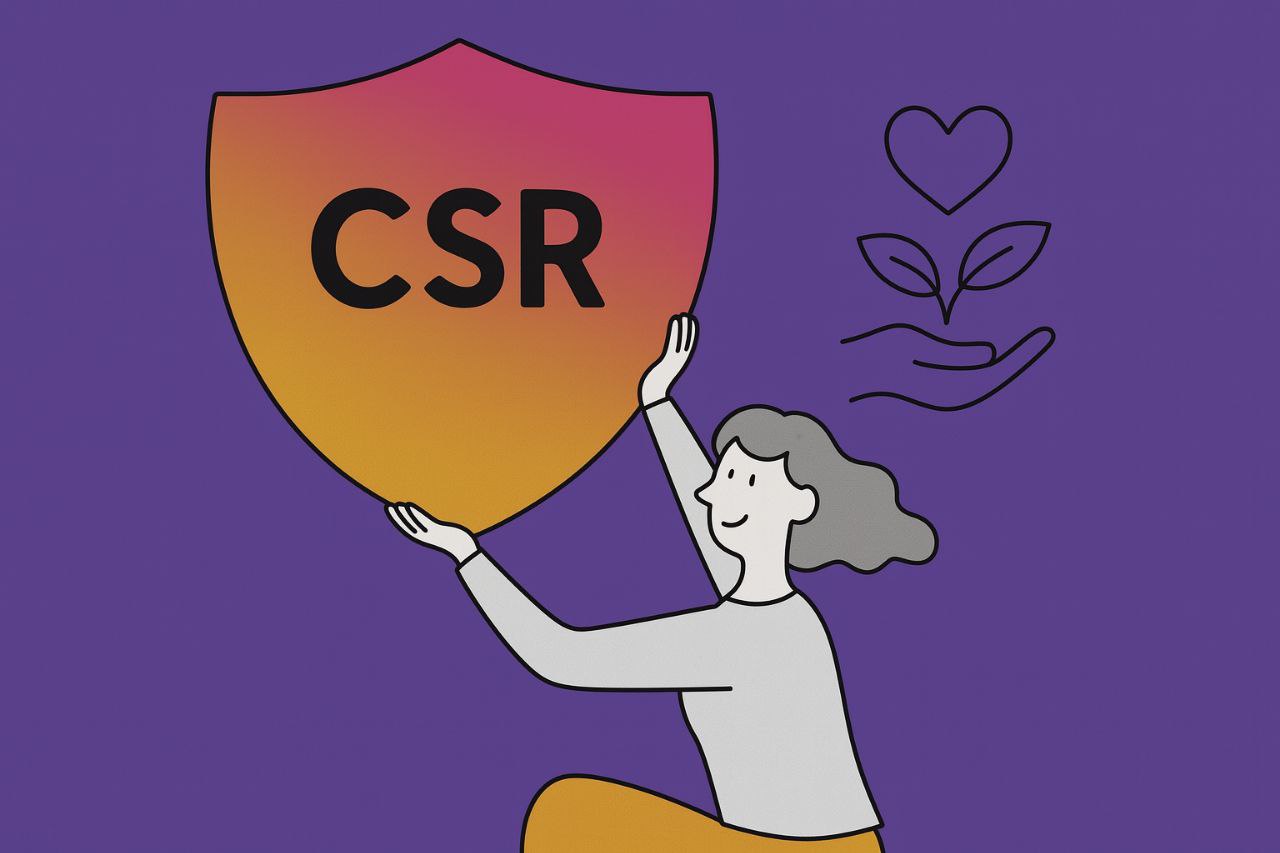
Got a story worth telling?
Be our next guest!
🎙️ Apply now to be interviewed or published on our platform.

For centuries, businesses — and societies — operated under the unspoken mantra: "Après moi, le déluge." But today’s rising generations, especially Gen Z, are turning that on its head. They care deeply about sustainability — not just environmental, but also interpersonal and ethical.
If your business wants to thrive, attract next-gen talent, and build long-term partnerships, it’s time to go beyond profit and integrate these values into everyday operations. The framework that enables this is called Corporate Social Responsibility (CSR) — and it’s not just for the big players.
In this article, we break down what CSR really is, when to implement it, and how it helps you grow responsibly. We’ll also bust common myths that still keep many businesses from stepping into the future.
The ideal time to implement CSR? From day one.
It’s like raising a child — values embedded early are easier to maintain than those imposed later. When CSR is part of the original company DNA, employees accept and support it naturally. Late-stage efforts, by contrast, can be met with confusion or resistance.
But it’s never too late to grow wiser. Many businesses come to CSR as a result of years of experience, or even crisis. What matters is the commitment to align your business with global needs — from reducing environmental impact to improving well-being. In return, you gain trust, better culture, and often, higher profit.
In Chinese, the word "crisis" is written using characters that mean "danger" and "opportunity." In volatile times, CSR is exactly that — a chance to build resilience, reimagine your unique value proposition, and gain investor and customer loyalty.
Sure, during economic downturns, CSR can seem like an unaffordable luxury. But today’s consumers, governments, and financial institutions are re-evaluating priorities. Brands that ignore global values risk becoming irrelevant.
Short-term? You might survive without CSR. Long-term? It’s essential.
CSR originated in the 1980s and has evolved into a key area that intersects management, marketing, and HR. Core requirements include:
The United Nations’ 17 Sustainable Development Goals (SDGs), adopted in 2015, provide a global framework. Responsible companies now align their operations with these SDGs — evaluating how their business model affects education, resource use, equality, and more.
Think of CSR as a ribbon woven into the braid of your business strategy. Done right, it reinforces everything you do.
Not true. You don’t need billions to be responsible. Even small actions make a big impact.
Example: A small office can adopt a "green office" model — motion-sensor lighting, energy-saving bulbs, low-flow water fixtures, indoor plants, recycling stations, digital paperwork.
Eco-friendly procurement is another: sourcing packaging or hangers from recycled materials. These changes are affordable — and often save money.
CSR doesn’t kill profit — it supports it.
Investors are increasingly attracted to value-driven businesses. A strong CSR program builds partnerships, expands into new markets, and increases your appeal to consumers — especially in high-trust, high-income regions.
With worsening climate and social issues, CSR is only becoming more relevant. Many countries are moving toward regulation. Soon, responsible companies won’t just be celebrated — they’ll be standardized and incentivized.
Charity can be part of CSR, but only if it’s regular and strategic. One-time donations are commendable, but they don’t build systems for change.
Actually, they do — when done transparently and authentically. Telling your CSR story inspires others and attracts aligned partners.
Example: Hotels that display their sustainability practices — energy efficiency, waste management, local sourcing — build guest trust and loyalty.
CSR reports (non-financial reports) are becoming standard practice in Europe. Even where they’re not required, conscious companies are publishing them voluntarily — setting the tone for a new business culture.
Integrating CSR isn’t just about optics — it’s about building a future-proof business. CSR helps you:
Whether you're just beginning or refining your existing strategy, now is the right time to act.
At Probusiness.media, we’ll continue showcasing businesses that don’t just grow — but grow responsibly.
Subscribe now for exclusive content and expert insights. Be the first to stay informed!
